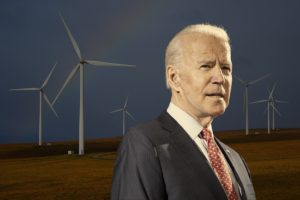The current energy strategies adopted by the U.S. and European nations reveal a significant inconsistency, as they financially bolster Russia while claiming to oppose its military actions in Ukraine. Critics call for a more coherent energy policy to ensure geopolitical stability.
U.S. and European Energy Policies: A Clash of Geopolitical Aspirations and Realities

U.S. and European Energy Policies: A Clash of Geopolitical Aspirations and Realities
The paradox of continued Russian energy purchases amid military support for Ukraine raises questions about the effectiveness of American and European strategies against Russia.
The conflicting energy strategies of the U.S. and European nations towards Russia illustrate serious discrepancies, revealing doubts about the effectiveness of their geopolitical objectives. Despite the Biden administration and NATO allies committing billions in military aid to Ukraine and imposing sanctions on Russia, they simultaneously continue to purchase oil, gas, and liquefied natural gas (LNG) from Russia. This contradiction not only boosts the Kremlin's financial resources but also undermines the West’s proclaimed goal of diminishing Russian influence.
President Biden’s domestic energy policies contribute to this inconsistency. His administration has restricted oil and gas production in the U.S. at a critical moment when European partners are desperate to wean themselves off Russian energy. This limitation not only hinders America's ability to assist its allies but also weakens the intended impact of sanctions meant to cripple Russia's economy. Critics argue that these inconsistencies demonstrate a lack of strategic foresight in U.S. energy policy, especially compared to the previous Trump administration's "energy dominance" agenda.
Under former President Trump, the focus on energy independence involved fostering U.S. oil and gas production to create a strategy that aligned American energy policy more closely with its geopolitical goals. Advocates of this approach claimed it would enhance transatlantic energy security while reducing reliance on adversarial nations. They argue that the U.S. could establish itself as a trustworthy supplier to NATO allies, thereby countering Russian energy imports and cutting off essential revenue streams for Moscow.
The ongoing double-dealing—providing military aid to Ukraine while inadvertently financing Russia’s military efforts through energy purchases—highlights a significant flaw in Western strategy. Although European countries openly support Ukraine, many still rely heavily on Russian energy, often through both transparent and obscured trade channels. This dynamic undermines the effectiveness of sanctions aimed at weakening Russia's military capabilities.
Establishing a coherent energy policy is crucial for the U.S. and its European allies. By increasing domestic energy production, America could set a positive example, assisting Europe in its transition away from Russian energy while ensuring global energy markets remain stable. This approach would also bolster the U.S.'s position in any future negotiations with Moscow. A realignment of strategies is not only practical but essential for achieving longer-term geopolitical and economic stability.
President Biden’s domestic energy policies contribute to this inconsistency. His administration has restricted oil and gas production in the U.S. at a critical moment when European partners are desperate to wean themselves off Russian energy. This limitation not only hinders America's ability to assist its allies but also weakens the intended impact of sanctions meant to cripple Russia's economy. Critics argue that these inconsistencies demonstrate a lack of strategic foresight in U.S. energy policy, especially compared to the previous Trump administration's "energy dominance" agenda.
Under former President Trump, the focus on energy independence involved fostering U.S. oil and gas production to create a strategy that aligned American energy policy more closely with its geopolitical goals. Advocates of this approach claimed it would enhance transatlantic energy security while reducing reliance on adversarial nations. They argue that the U.S. could establish itself as a trustworthy supplier to NATO allies, thereby countering Russian energy imports and cutting off essential revenue streams for Moscow.
The ongoing double-dealing—providing military aid to Ukraine while inadvertently financing Russia’s military efforts through energy purchases—highlights a significant flaw in Western strategy. Although European countries openly support Ukraine, many still rely heavily on Russian energy, often through both transparent and obscured trade channels. This dynamic undermines the effectiveness of sanctions aimed at weakening Russia's military capabilities.
Establishing a coherent energy policy is crucial for the U.S. and its European allies. By increasing domestic energy production, America could set a positive example, assisting Europe in its transition away from Russian energy while ensuring global energy markets remain stable. This approach would also bolster the U.S.'s position in any future negotiations with Moscow. A realignment of strategies is not only practical but essential for achieving longer-term geopolitical and economic stability.





















